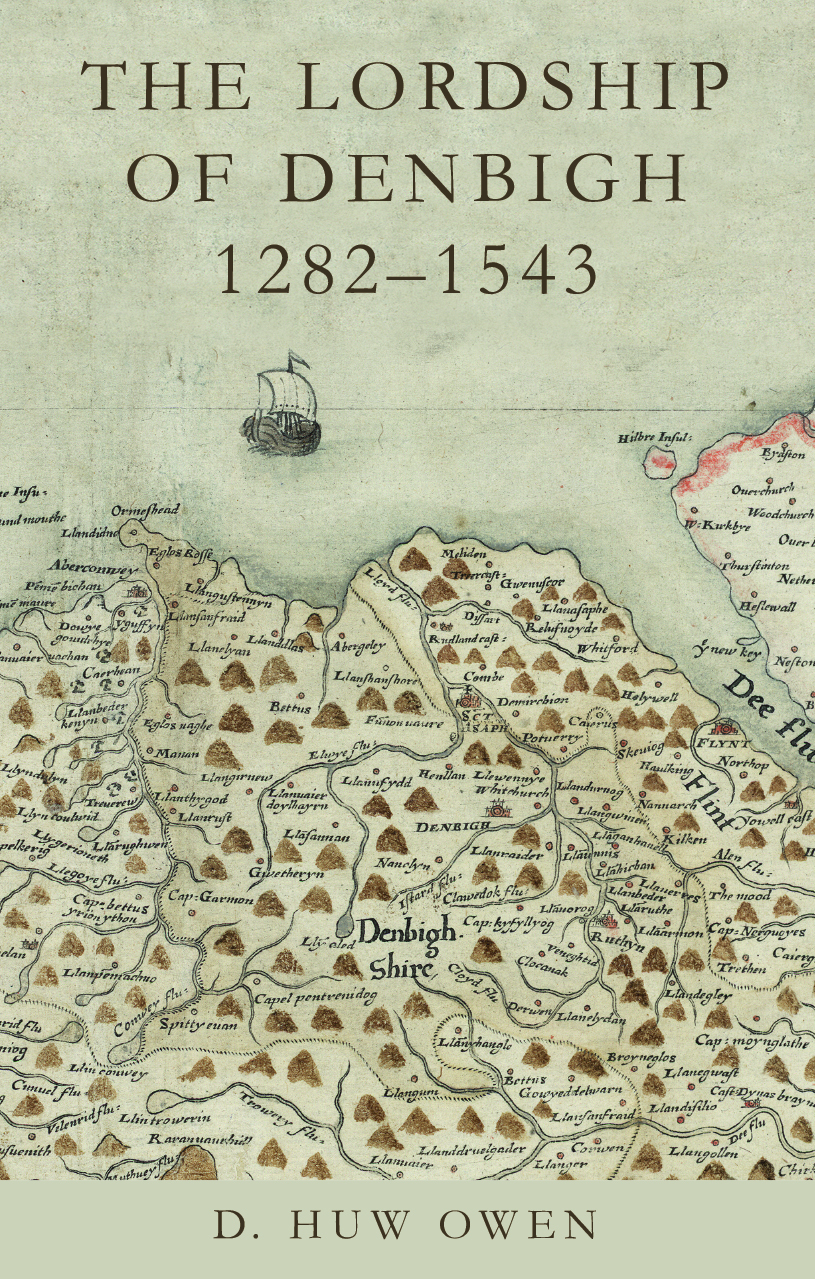The Lordship of Denbigh 1282-1543
Author(s) D. Huw Owen
Language: English
Genre(s): History
Series: Studies in Welsh History
- October 2024 · 264 pages ·216x138mm
- · Paperback - 9781837721740
- · eBook - pdf - 9781837721757
- · eBook - epub - 9781837721764
The lordship of Denbigh, held by prominent English barons following its creation in 1282, was directly affected by several major events culminating in its incorporation in Denbighshire, newly-formed by the Union legislation of 1536–43.
The social policy adopted by the central administration, based at Denbigh castle, featured a colony comprising English settlers who inhabited five English settlement centres surrounded by localities containing displaced Welsh tenants. Members of kindred groupings succeeded in evading traditional restrictions, with detailed information presented in several rentals on the acquisition and disposal of lands by male and female members of both Welsh and settler families. Despite the earlier extensive English settlement, the area has been considered to have contributed immensely to the Welsh literary heritage.
‘With consummate skill, the author showcases what the lifetime of Edward Vaughan tells us about how webs of feud, litigation, inheritance and factional conflict shaped the experience of civil war. Bowen offers a new style of biography, inventively fashioned from litigation records to illuminate provincial gentry life in the mid-Wales borderlands.’
Professor Andrew Hopper, University of Oxford
‘This is a fascinating and truly ground-breaking study of factionalism and local power-politics during the period of the English civil war. The author's innovative and thorough use of source material, much of it hitherto little used or almost entirely overlooked, is deeply impressive. It enables him to recount not only the troubled history of a particular individual and his struggles to retain his Montgomeryshire estates before, during and after the civil war, but also more broadly the often-bitter parliamentarian inter-factional fighting, in Montgomeryshire itself and within neighbouring counties on either side of the English-Welsh border, during the 1640s and 1650s. The reconstruction of parliamentarian cliques within the county and the wider region opens up new perspectives on the history of the area during and after the civil war and offers a fresh, thoroughly-documented and convincing interpretation with potentially much wider resonance. The text is beautifully written, with a real sense of drama at times, and the story recounted is clear, engaging and absorbing, ensuring that this important and impressive new study will be widely accessible.’
Professor Peter Gaunt, University of Chester
SERIES EDITORS’ FOREWORD
PREFACE
LIST OF ABBREVIATIONS
GLOSSARY
INTRODUCTION
1.THE GEOGRAPHICAL CONTEXT AND POLITICAL BACKGROUND.
2.THE SOCIAL AND ECONOMIC BACKGROUND.
3. POLITICAL CONTROL, 1282 -1344.
4. ADMINISTRATION, 1282-1334.
5. SOCIETY AND ECONOMY, 1282-1334: SEIGNEURIAL REVENUE, ESCHEAT AND EXCHANGE.
6. SOCIETY AND ECONOMY, 1282-1334: AN ENGLISH COLONY, PREDOMINANT MEMBERS OF SETTLER FAMILIES.
7. BOROUGHS, 1282-1334.
8. POLITICAL CONTROL, 1344 -1382.
9. POLITICAL CONTROL, 1382-1425.
10. THE LAND MARKET, 1334-1437.
11. THE ECONOMY 1334-1425.
12. ADMINISTRATION 1334-1543
13. POLITICAL CONTROL AND LAND TENURE, 1425-1485.
14. POLITICAL CONTROL AND LAND TENURE, 1485-1543
15. BOROUGHS 1334-1543
16. POSTSCRIPT
17. CONCLUSION
APPENDIX
BIBLIOGRAPHY
INDEX


